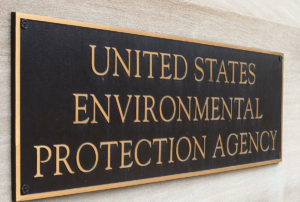 The Environmental Protection Agency (EPA) has published its proposed rule to establish required Renewable Fuel Standard (RFS) volumes and percentage standards for 2023, 2024, and 2025, as well as to propose a series of important modifications to strengthen and expand the RFS program.
The Environmental Protection Agency (EPA) has published its proposed rule to establish required Renewable Fuel Standard (RFS) volumes and percentage standards for 2023, 2024, and 2025, as well as to propose a series of important modifications to strengthen and expand the RFS program.
Ethanol producers and corn farmers are generally pleased with the proposal, while soybean farmers and biodiesel/renewable diesel interests are disappointed.
The proposal sets next year’s (2023) total RFS requirement at 20.82 billion gallons, including 5.82 billion in advanced biofuels and 15 billion from conventional renewable fuels like corn ethanol. In addition, EPA proposes to add a supplemental volume of 250 million gallons on top of the 2023 standards to address a 2017 D.C. Circuit Court decision. The total RFS volume proposed for 2024 is 21.87 billion gallons, with 6.62 billion advanced and 15.25 billion conventional; and for 2025, EPA increases the total volume to 22.68 billion gallons, 7.43 billion of advanced biofuel and 15.25 billion of conventional renewable fuel.
Renewable Fuels Association president and CEO Geoff Cooper said they are pleased because the proposed rule “solidifies a role” for the RFS going forward in future efforts to reduce carbon emissions. “By including three years’ worth of RFS volumes, EPA’s proposed rule will finally provide certainty and stability for the entire supply chain.”
Cooper answered questions from the media about the proposal during a conference call Thursday.
RFA CEO on EPA Proposed RFS Volumes Rule 20:23
“We are pleased with EPA’s forward-looking approach of annual increases in the proposal,” said National Corn Growers Association President Tom Haag. “EPA clearly recognizes that renewable fuels like ethanol play a critical role in cutting greenhouse gas emissions, increasing U.S. energy independence and providing long-term relief to consumers at the pump.”
However, Clean Fuels Alliance America criticized the agency’s minor increases proposed for biomass-based biodiesel volumes are for “undercutting investments in biodiesel and renewable diesel capacity.”
“EPA’s overdue set proposal significantly undercounts existing biomass-based diesel production and fails to provide growth for investments the industry has already made in additional capacity, including for sustainable aviation fuel. The volumes EPA is proposing for 2023, 2024 and 2025 ignore the more than 3 billion gallons currently in the market and fail to take into account the planned growth of the clean fuels sector,” said Clean Fuels Vice President of Federal Affairs Kurt Kovarik.
American Soybean Association president Brad Doyle was surprised and disappointed by EPA’s proposal. “This draft rule slams the brakes on progress being made in biofuels investment and growth. Instead of continuing to support available, low-emission plant-based fuel sources, EPA has changed course and seemingly is ignoring the major investments in and consumer demand for biomass-based diesel and other biofuels that exists right now,” said Doyle.
The entire proposal released by EPA this week is nearly 700 pages. EPA will hold a virtual public hearing by Zoom on January 10, 2023, for the proposed rule. An additional session will be held on January 11, 2023, if necessary, to accommodate the number of testifiers that sign-up to testify. There will be no in-person hearing.
